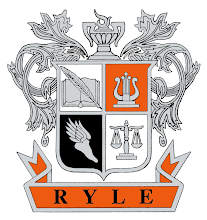"If a text or a call is that important, it should be no problem pulling over to the side of the road and then take care of what you need to," Perona said. "No life is worth texting your friend or anybody back while you're behind the wheel."
By JIM SALTER and JIM SUHR Associated Press
ST. JAMES, Mo. December 17, 2011 (AP)
The text was about something innocuous: A request to go to the county fair. It set off a highway pileup that took two lives, injured dozens and left two school buses and a pickup truck in a crumpled heap.
As the nation debates a federal recommendation to eliminate cellphone use in cars, the high school band students from St. James who were involved in the wreck last year have already done it themselves. After losing one of their classmates, many of the teens made a vow: Using a cellphone behind the wheel is something they just won't do.
The young man who was on the other end of the pivotal text exchange, who says he didn't know his friend was driving, is still haunted by the catastrophic result of what began as a simple message about their plans.
"I pretty much feel like it was my fault," said the young man, who spoke to The Associated Press on condition that his name not be used because he fears retaliation from people who might blame him.
He was texting with 19-year-old Daniel Schatz, who investigators say set off the accident by slamming into the back of a semi cab that had slowed for road construction. The buses then crashed into the wreckage. Schatz and a 15-year-old girl on one of the buses, Jessica Brinker, were killed instantly.
The National Transportation Safety Board has cited that accident in its push to ban drivers from using cellphones — even hands-free devices. That recommendation has already met with resistance from lawmakers around the country who fear an unprecedented reach into people's driving habits.
But young people in St. James, a sleepy town of about 3,700 near the Mark Twain National Forest, have already changed their behavior.
"The majority of us will refuse to text and drive because of this," said Ian Vannatta, 16, who was on one of the buses and is a new driver. "It's the difference between life and death."
Emily Perona, now an 18-year-old senior, survived the bus crash with a broken pelvis despite sitting just one seat ahead of Brinker.
"If a text or a call is that important, it should be no problem pulling over to the side of the road and then take care of what you need to," Perona said. "No life is worth texting your friend or anybody back while you're behind the wheel."
The events of Aug. 5, 2010 — spelled out in a chilling Missouri State Highway Patrol report — convinced her of that.
Vannatta and Perona were among about 50 St. James band students piled onto separate buses — one for boys, the other for girls — on their yearly pilgrimage to Six Flags St. Louis.
Conditions were clear, though several stretches along the freeway were under repair. The buses made their way through two work zones before rolling up to a third at Gray Summit, about 40 miles southwest of St. Louis.
Michael Crabtree, a 43-year-old trucker bound for St. Louis for a load, had just gotten onto Interstate 44 driving a semi cab without a trailer. Near Gray Summit, along a straight, uphill ribbon of highway, he slowed for road work when he saw in his rearview mirror a silver pickup barreling down on him. He braced for impact.
The 2007 GMC driven by Schatz — a former University of Missouri reserve quarterback and a Republican state lawmaker's son from nearby Sullivan — hit Crabtree's cab at 55 mph.
Tour bus driver Eugene Reed saw the wreck from behind, pulled over and scrambled out to warn other approaching drivers. That's when both of the St. James buses rolled by.
To read the entire article - For Mo. Students, Cellphone Debate Isn't Academic
















No comments:
Post a Comment